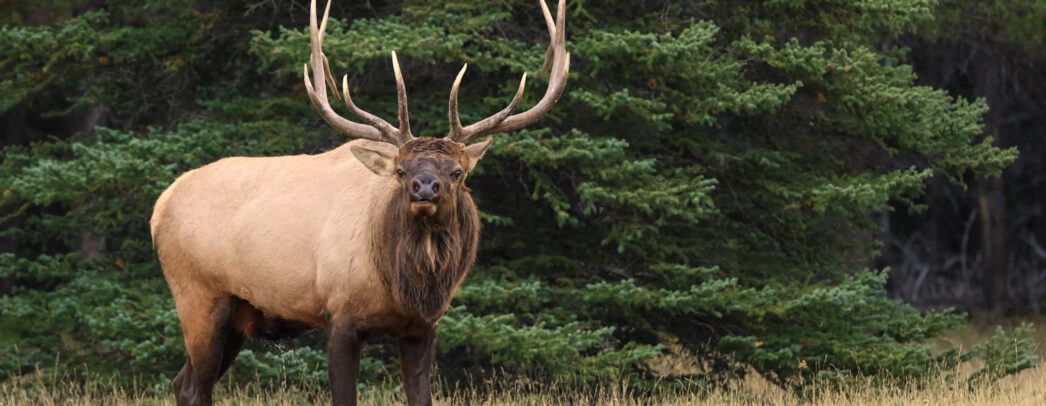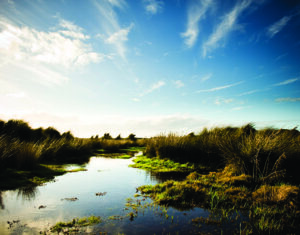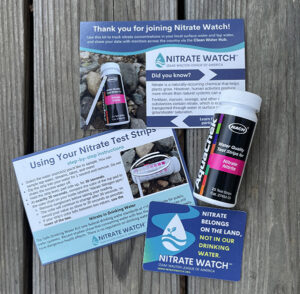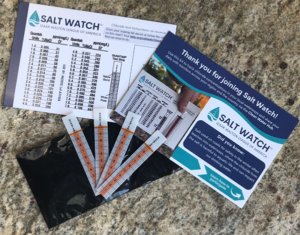Now it’s our turn to fight for these lands

By Jared Mott, Conservation Director, Izaak Walton League —
The trigger broke just before I expected it, exactly how you want it to. A hundred and sixty-eight yards in front of me, a mule deer buck, my first, lay still. I laid behind the rifle for a minute after I cycled the action, making sure.
When I could smell burnt gunpowder from the spent casing a couple feet away, I finally raised my cheek from the stock to find the empty shell. That took a second, and a small wave of panic hit as I finally looked up from the ground and back down the canyon because I couldn’t immediately see him. Nearly all my big game hunting experience is with a bow so the distance had me a touch frantic. I knew he was there, but I clawed my binoculars out of their harness and exhaled explosively when I finally located his rack sticking up between the aspens.
A dim glow from my father’s headlamp, only forty yards away, was the only visual cue he was there. He had clamored up the little mesa to meet me half an hour ago. An hour before that, I had watched my arrow hit a 5×5 bull elk in the fading twilight, again, my first. The shot looked good and a first elk, especially with archery equipment, isn’t a small thing, either on the ground or in the mind. But I made myself wait.
I sent my father a note with my satellite communicator and dug into my pack to pull out what was left of my food for the day. I told myself I wouldn’t move from that exact spot until Dad got there, or I had consumed everything in that bag. Full darkness set in and I was down to the last half of a Honeystinger when I saw the faint glow come over the lip.
We took our time, but we couldn’t find the arrow and the bull didn’t bleed. I had only covered about fifty yards in the 30 minutes since we slowly spread out from where the elk had stood, trying to will a drop of blood or any clue really, onto the ground illuminated by my light. Then, as I turned away from the dim glow where my father was, my light reflected off a long beam of bone, with tines sticking up through the oak brush.
The setting for both of those recoveries, the hunts that brought me to my first mule deer and first elk, are as much a character in my memory of those hunts with my father as the animals themselves. I’m not sure I’ve ever seen a sky as blue as the morning I shot the mule deer in a wildfire scarred canyon or felt so enveloped by darkness as I waited for my dad to join me and the elk at the top of that mesa.
But both of those places are in danger now, part of a vast network of public lands that some in Congress want to strip away from the Americans that hold title to them.
The nation’s 640 million acres of public lands give every American a birthright unmatched by any other across the globe. They are completely unique, a network of lands so vast that even as our nation’s population rockets towards 400 million, there is space enough for someone motivated to find it to completely detach from modern life and fall back into the ancient rhythms that have guided every generation of Americans save the last 10 or so, going back millennia.
There are countless more generations of Americans who hunted ancient bison herds with Folsom points than have ever understood what a U.S. Senator is or why one would give up one of the richest gifts to have ever been bestowed by those on whose shoulders we stand.
America’s public lands, whether used to hunt elk or deer, hike, camp, fish or graze your family’s cattle so that multiple generations have a chance to develop the sort of roots in haggard places needed for a community might grow, are hard won prizes; there are dozens of reasons no other country has them but it mostly boils down to fighting for the everyman and making sure you and I, not just the rich or properly-born, can be free in this most absolutely American of ways.
So now it is our turn to fight for these lands, because those who wish to possess them for themselves sense an opportunity, a slim opening to kick a snowball down a hill. Three million acres, mandated to be sold in the legislation being considered by Congress right now. That’s less than one percent of all public lands in America, they’ll tell you. But they have identified 250 million acres from which the three million will be “nominated.”
Are we to believe that the snowball, once kicked and rolling, will not grow? That the richest among us will be satisfied with the plunder of three million acres? And of what solace is a stop sign somewhere in future if the canyon where I had the rendezvous with the mule deer is on the chopping block?
No. We must stop this here and now.

 Your kit will include a bottle containing 25 nitrate test strips which you can use to test your water source(s) throughout the year. You’ll also receive postcards explaining how to use your nitrate test strips and how to share your Nitrate Watch results on the Clean Water Hub.
Your kit will include a bottle containing 25 nitrate test strips which you can use to test your water source(s) throughout the year. You’ll also receive postcards explaining how to use your nitrate test strips and how to share your Nitrate Watch results on the Clean Water Hub. Your kit will include four test strips so you can test your waterway throughout the season. You’ll also receive a chart to help you interpret your results and a postcard with instructions for completing a Salt Watch test and reporting your findings.
Your kit will include four test strips so you can test your waterway throughout the season. You’ll also receive a chart to help you interpret your results and a postcard with instructions for completing a Salt Watch test and reporting your findings.